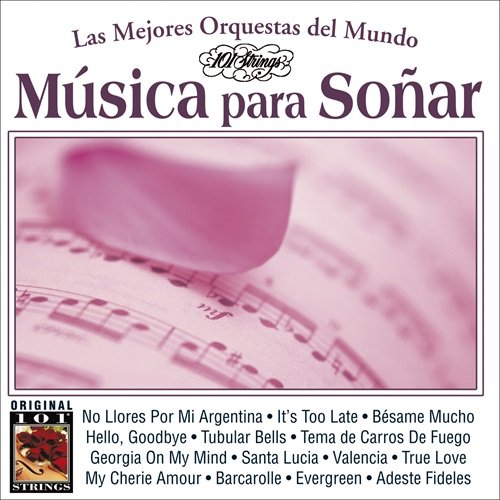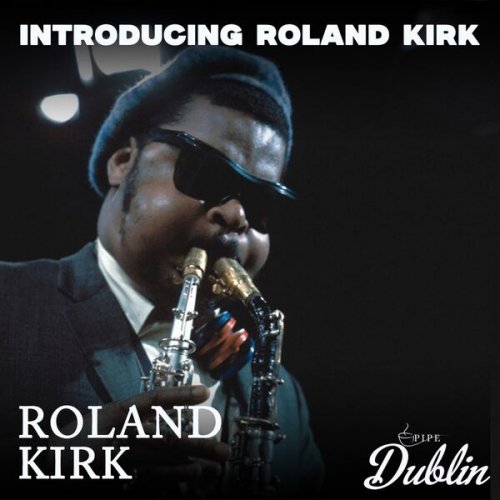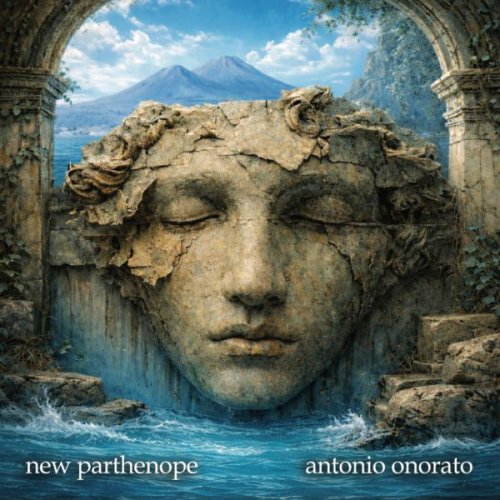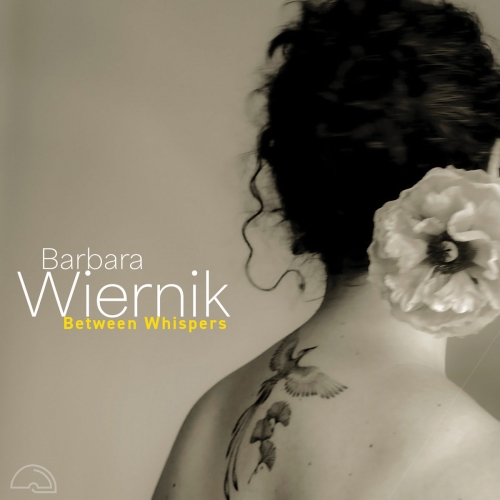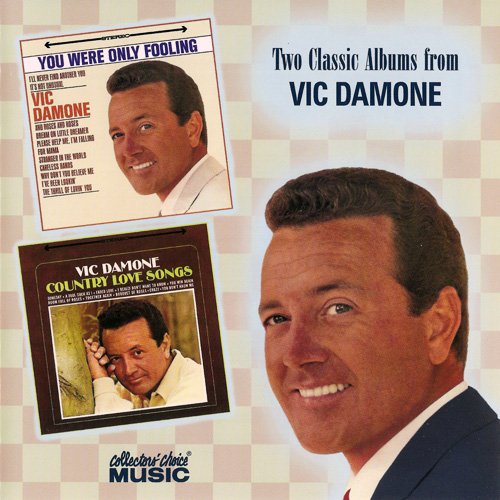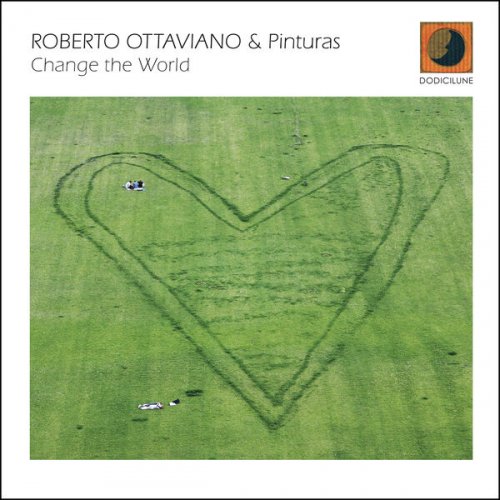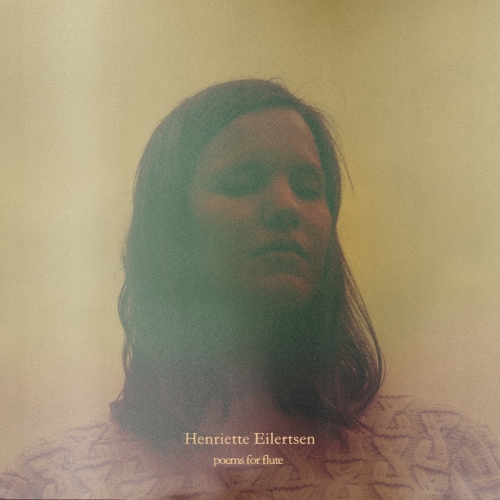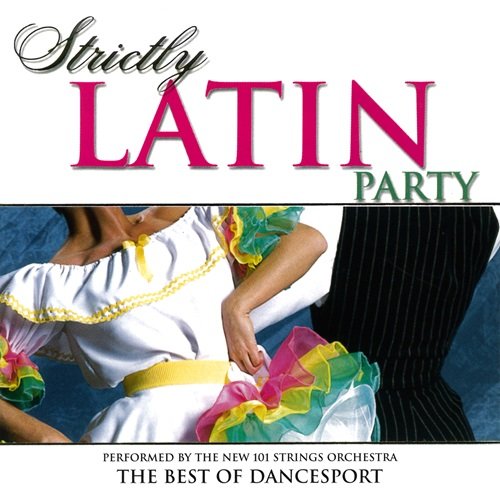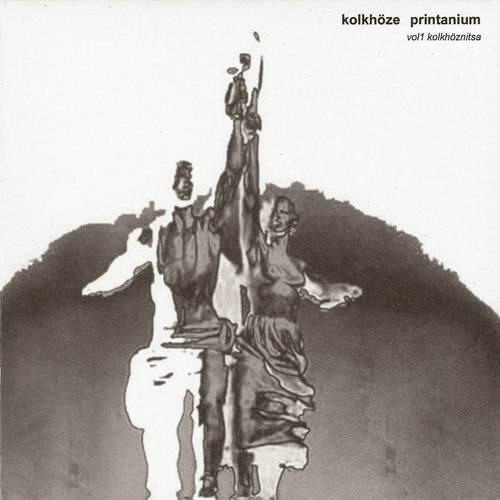Charlie Parker, Chet Baker - Jazz, Vol. 1 (2024)
- 16 Sep, 14:47
- change text size:
Facebook
Twitter
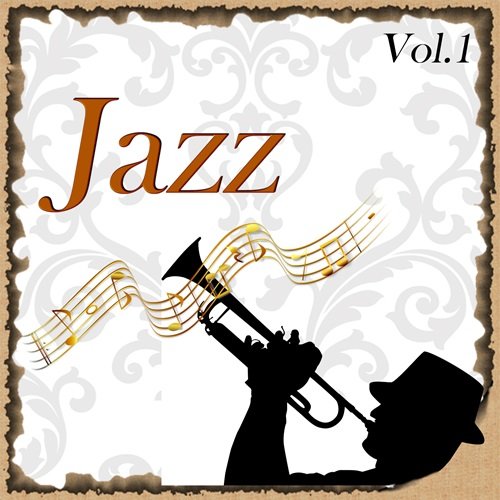
Artist: Charlie Parker, Chet Baker
Title: Jazz, Vol. 1
Year Of Release: 2024
Label: 2024 Alia Digital
Genre: Jazz
Quality: Mp3 320 / Flac (tracks)
Total Time: 01:14:58
Total Size: 183/375 Mb
WebSite: Album Preview
Tracklist:Title: Jazz, Vol. 1
Year Of Release: 2024
Label: 2024 Alia Digital
Genre: Jazz
Quality: Mp3 320 / Flac (tracks)
Total Time: 01:14:58
Total Size: 183/375 Mb
WebSite: Album Preview
01. Albert's House 2:39
02. No Noise 5:55
03. Farewell, San Francisco 5:01
04. Mango Mangue 2:55
05. Okiedoke 3:04
06. Time 4:44
07. I Should Have Told You So 4:45
08. Afro-Cuban Jazz Suite 17:14
09. How Dare You, Sir 3:38
10. Un Poquito De Tu Amor 2:42
11. Tico, Tico 2:45
12. Fiesta 2:51
13. Sunday In Town 5:00
14. A Man Who Used To be 3:37
15. Never Had This Feeling Before 3:44
16. Life 4:22
Charlie Parker:
Charlie Parker radically reshaped jazz, changing the way musicians, fans and critics approached it. If Dizzy Gillespie was bop's patron saint, Parker was its founding elder. He was an amazing improviser, who used a slow, thin vibrato, astonishing harmonic knowledge and total technical command to recast songs via his solos. He usually ignored the melody and instead went to the harmonic structure. Through breaking the pulse, varying the rhythm, experimenting with pitch, in short, doing any and everything possible, Parker created solos that were fresh, radical and totally distinctive, yet were related to the original and didn't destroy its organization. He knew thousands of tunes, and freely incorporated snatches of Tin Pan Alley, blues, hillbilly, and classical into other tunes. But these weren't randomly inserted; they were included in ways that fit the moment. These snippets were both humorous and relevant. Parker did this while playing at either rapid fire tempos or doing slow, agonizing 12-bar wailers. He emerged as the most imitated, admired saxophonist of his day, and though his influence eventually waned, his impact remains substantial. There aren't many alto saxophonists, especially those playing bebop or related styles, that haven't closely studied his work and committed many Parker solos to memory. He's responsible for numerous American music classics, among them "Confirmation," "Yardbird Suite," "Relaxin' At Camarillo," "Ornithology," "Scrapple From The Apple," "Parker's Mood," and "Now's The Time," which was later reworked into an R&B sensation "The Hucklebuck." Parker got his first music lessons in Kansas City public schools. His father was a vaudevillian. He began playing alto sax in 1931, and worked infrequently before dropping out in 1935 to become a full-time player. Sadly, his involvement with drugs started almost as soon as he began playing professionally. He worked mainly in Kansas City until 1939, playing with jazz and blues groups, and honing his craft in legendary Kansas City jam sessions. One incident during this period stands out; Jo Jones reportedly fired a cymbal at Parker one night in a rage over his playing. His astonishing harmonic skills were developed during this time; Parker eventually was able to modulate from any key to any other key. Local musicians Buster Smith and the great Lester Young were major influences on Parker's early style. Parker initially played with Jay McShann in 1937, and also Harlan Leonard. While in Leonard's band he met Tadd Dameron, a superb arranger. He began developing his lifelong reputation for unpredictability. Parker visited New York in 1939, staying until 1940. He participated in some jam sessions, and was a dishwasher for three months at a club where Art Tatum was playing. He started his harmonic experiments one night at a Harlem club, improvising on the chords upper intervals for "Cherokee" rather than its lower ones. But his first visit to New York didn't make much impact. Parker met Gillespie in 1940, when he came through on tour. He joined McShann's big band in 1940, and remained until 1942. They toured the Southwest, Midwest and in New York, recording in 1941 in Dallas. These were Parker's first sessions. He was beginning to become famous for brillant solos, though still working in strict swing style. There was a short stint with Noble Sissle's band, then he joined Earl Hines in 1942, reuniting with Gillespie. By 1944, he, Gillespie and many other top young players were in Billy Eckstine's big band. Parker had been participating nightly in after hours jam sessions since 1942. These sessions were held at various locations, among them Minton's Playhouse and Monroe's Uptown House. He began recording after the ban ended in 1944 (though there are some acetates from '43 with Parker on tenor), cutting songs with Tiny Grimes. He began heading his own band in 1945, while working with Gillespie in combos. The two took their group to Hollywood in December of that year, playing a six-week engagement at various clubs. These were historic gigs, with both club audiences and musical lineups a good mix of blacks and whites. Parker remained in Los Angeles, recording for Ross Russell's Dial label and performing until he suffered a nervous breakdown in 1946. His mental and physical (suffering from heroin and alcohol addiction) condition caused him to be confined at the Camarillo State Hospital. After his release in 1947, Parker continued working in Los Angeles, making more fine records for Dial. He came back to New York in April of 1947, forming a quintet with Miles Davis, Duke Jordan, Tommy Potter and Max Roach and cutting several seminal dates. Roy Haynes and Lucky Thompson also worked with this band occasionally, as did Red Rodney and Kenny Dorham. Parker became a larger-than-life celebrity from 1947 to 1951. He played in clubs, did concerts and broadcast performances, toured with Jazz At The Philharmonic, worked in Afro-Latin bands with Gillespie, and visited Europe in 1949 and 1950. He did a controversial session with strings in 1950 that became as popular as anything he ever recorded. At the same time, in the midst of this celebrity status, Parker's drug addiction worsened. He became just as famous for no-shows, pawnshop incidents with his saxophone and irrational behavior as the matchless tone and soaring solos. Parker's cabaret license was revoked in 1951 at the behest of the city's narcotics squad. It was reinstated two years later, but by that time the damage had been done. Parker did appear at the 1953 Massey Hall concert in Canada with Gillespie, Roach, Charles Mingus and Bud Powell, and cut both a wonderful big band release in Washington, D.C. and a combo session at Storyville in Boston that same year. But the end was nearing. Prevented from working in nightclubs, Parker's health steadily declined while his habit grew worse. He twice attemped suicide before committing himself to Bellvue in 1954. His last public appearance came at Birdland, the club named in his honor, in March of 1955. Parker died seven days later, at the Manhattan apartment of the Baroness Pannonica de Koenigswarter, the same place Thelonious Monk would eventually die. Parker reissues are fortunately widely available. His early work with McShann has been reissued by domestic and import labels. His Verve output has been reissued twice on mammoth sets; once a 10-album box and recently a 10-CD set with many additional tracks. There have been two-record and two-disc best of anthologies. His Dial material has been haphazardly reissued, but there are complete import collections available. Some Prestige material is available, and his landmark Savoy sessions are coming out in separate editions. They've previously been reissued in two-album "best ofs" and complete boxed editions. Hopefully, the handful of Columbia Parker sessions that were available in the '70s on vinyl will reappear. Blue Note has reissued the Storyville session. Elektra had reissued the Washington D.C. date on vinyl, but it was deleted. Mosaic has issued a mammoth boxed set of Parker recordings made by fanatical follower Dean Benedetti, who took a portable recorder to countless Parker performances, concerts and sessions, faithfully copying every Parker solo. This is the only collection in the company's illustrious history they they personally own. Stash has issued the '43 Parker sessions on tenor, and also has issued a two-disc best of Dial package. There's lots of transcription, bootleg and broadcast items available. Ross Russell's self-serving book "Bird Lives!" irritated many by its slant, as did Robert Reisner's "Bird - The Legend Of Charlie Parker." Gary Giddins' "Celebrating Bird - The Triumph Of Charlie Parker" is the best combination of scholarship, commentary and analysis. There are also many accounts available in anthologies. Clint Eastwood valiantly attempted to get Parker's life on the screen with "Bird" in 1988. The results were quite mixed.
Chet Baker:
An icon of West Coast cool jazz, Chet Baker rose to fame in '50s with his lyrical trumpet lines and spare, romantic singing. After being handpicked for a West Coast tour with Charlie Parker, he burst onto the scene as a member of Gerry Mulligan's pianoless quartet, whose recording of "My Funny Valentine" made him a star even beyond his cult jazz audience. Signed to Pacific Jazz, he released a series of popular albums beginning with 1954's Chet Baker Sings, which featured his definitive vocal take of "My Funny Valentine;" from then on his signature song. By the end of the decade, he had topped both the Downbeat and Metronome Magazine reader's polls, famously beating out two of the era's most renowned trumpeters Miles Davis and Clifford Brown. He was also named DownBeat top jazz vocalist in 1954. At the height of his success, drug addiction and numerous incarcerations dimmed his spotlight and found him living and working a peripatetic lifestyle in Europe for much of the '60s and '70s. He also suffered the loss of his teeth, which hampered his playing until he worked his way back to health and launched a comeback with 1974's She Was Too Good To Me. He was also the subject of fashion photographer and filmmaker Bruce Weber's Oscar-nominated 1988 documentary Let's Get Lost, which helped renew interest in his work. Tragically, he died that same year after falling out of a second story window of his Amsterdam hotel. Baker recorded prolifically during the last few decades of his life, leading to a wave of posthumously released albums, including My Favorite Songs, Vol. 1-2: The Last Great Concert, which captured one of his final concerts in Germany with the NDR Big Band and Radio Orchestra Hannover. In 2001, in recognition of the album's lasting influence, Chet Baker Sings was inducted into the Grammy Hall of Fame. Ethan Hawke portrayed Baker in the 2015 film Born to Be Blue, and yet more archival recordings surfaced with 2023's Blue Room: The 1979 Vara Studio Sessions in Holland.
Born in 1929 in Yale, Oklahoma, Baker's early years were marked by a rural, dustbowl upbringing. His father, Chesney Henry Baker,Sr., was a guitarist who was forced to turn to other work during the Depression; his mother, Vera (Moser) Baker, worked in a perfumery. The family moved from Oklahoma to Glendale, CA, in 1940. As a child, Baker sang at amateur competitions and in a church choir. Before his adolescence, his father brought home a trombone for him, then replaced it with a trumpet when the larger instrument proved too much for him. He had his first formal training in music in junior high and later at Glendale High School, but would play largely by ear for the rest of his life. In 1946, when he was only 16 years old, he dropped out of high school and his parents signed papers allowing him to enlist in the army; he was sent to Berlin, Germany, where he played in the 298th Army Band. After his discharge in 1948, he enrolled at El Camino College in Los Angeles, where he studied theory and harmony while playing in jazz clubs, but he quit college in the middle of his second year. He re-enlisted in the army in 1950 and became a member of the Sixth Army Band at the Presidio in San Francisco. But he also began sitting in at clubs in the city and he finally obtained a second discharge to become a professional jazz musician.
Baker initially played in Vido Musso's band, then with Stan Getz. (The first recording featuring Baker is a performance of "Out of Nowhere" that comes from a tape of a jam session made on March 24, 1952, and was released on the Fresh Sound Records LP Live at the Trade Winds.) His break came quickly, when, in the spring of 1952, he was chosen at an audition to play a series of West Coast dates with Charlie Parker, making his debut with the famed saxophonist at the Tiffany Club in Los Angeles on May 29, 1952. That summer, he began playing in the Gerry Mulligan Quartet, a group featuring only baritone sax, trumpet, bass, and drums -- no piano -- that attracted attention during an engagement at the Haig nightclub and through recordings on the newly formed Pacific Jazz Records (later known as World Pacific Records), beginning with the 10" LP Gerry Mulligan Quartet, which featured Baker's famous rendition of "My Funny Valentine."
The Gerry Mulligan Quartet lasted for less than a year, folding when its leader went to jail on a drug charge in June 1953. Baker went solo, forming his own quartet, which initially featured Russ Freeman on piano, Red Mitchell on bass, and Bobby White on drums, and making his first recording as leader for Pacific Jazz on July 24, 1953. Baker was hailed by fans and critics and he won a number of polls in the next few years. In 1954, Pacific Jazz released Chet Baker Sings, an album that increased his popularity beyond his core jazz audience; he would continue to sing for the rest of his career. Acknowledging his chiseled good looks, nearby Hollywood came calling and he made his acting debut in the film Hell's Horizon, released in the fall of 1955. But he declined an offer of a studio contract and toured Europe from September 1955 to April 1956. When he returned to the U.S., he formed a quintet that featured saxophonist Phil Urso and pianist Bobby Timmons. Contrary to his reputation for relaxed, laid-back playing, Baker turned to more of a bop style with this group, which recorded the album Chet Baker & Crew for Pacific Jazz in July 1956.
Baker toured the U.S. in February 1957 with the Birdland All-Stars and took a group to Europe later that year. He returned to Europe to stay in 1959, settling in Italy, where he acted in the film Urlatori Alla Sbarra. Hollywood, meanwhile, had not entirely given up on him, at least as a source of inspiration, and in 1960, a fictionalized film biography of his life, All the Fine Young Cannibals, appeared with Robert Wagner in the starring role of Chad Bixby.
Baker had become addicted to heroin in the 1950s and had been incarcerated briefly on several occasions, but his drug habit only began to interfere with his career significantly in the 1960s. He was arrested in Italy in the summer of 1960 and spent almost a year and a half in jail. He celebrated his release by recording Chet Is Back! for RCA in February 1962. (It has since been reissued as The Italian Sessions and as Somewhere Over the Rainbow.) Later in the year, he was arrested in West Germany and expelled to Switzerland, then France, later moving to England in August 1962 to appear as himself in the film The Stolen Hours, which was released in 1963. He was deported from England to France because of a drug offense in March 1963. He lived in Paris and performed there and in Spain over the next year, but after being arrested again in West Germany, he was deported back to the U.S. He returned to America after five years in Europe on March 3, 1964, and played primarily in New York and Los Angeles during the mid-'60s, having switched temporarily from trumpet to flügelhorn. In the summer of 1966, he suffered a severe beating in San Francisco that was related to his drug addiction. The incident is usually misdated and frequently exaggerated in accounts of his life, often due to his own unreliable testimony. It is said, for example, that all his teeth were knocked out, which is not the case, though one tooth was broken and the general deterioration of his teeth led to his being fitted with dentures in the late '60s, forcing him to retrain his embouchure. The beating was not the cause of the decline in his career during this period, but it is emblematic of that decline. By the end of the '60s, he was recording and performing only infrequently and he stopped playing completely in the early '70s.
Regaining some control over his life by taking methadone to control his heroin addiction (though he remained an addict), Baker eventually mounted a comeback that culminated in a prominent New York club engagement in November 1973 and a reunion concert with Gerry Mulligan at Carnegie Hall in November 1974 that was recorded and released by Epic Records. Also that year, he again marked his comeback with the excellent studio album She Was Too Good To Me, which featured altoist Paul Desmond. By the mid-'70s, Baker was able to return to Europe and he spent the rest of his life performing there primarily, with occasional trips to Japan and periods back in the U.S., though he had no permanent residence. Other notable albums released during this period are 1977's Once Upon a Summertime, 1977's Don Sebesky-produced You Can't Go Home Again (which found him surrounded by luminaries, including Desmond, Michael Brecker, Ron Carter, and Tony Williams, among others), and 1980's Chet Baker/Wolfgang Lackerschmid (a gorgeously atmospheric collaboration with the German vibraphonist).
By the '80s, he started to attract the attention of rock musicians, with whom he occasionally performed, for example adding trumpet to Elvis Costello's recording of his anti-Falklands War song "Shipbuilding" in 1983. In 1987, photographer and filmmaker Bruce Weber undertook a documentary film about Baker. The following year, Baker died in a fall from a hotel window in Amsterdam. Weber's film, Let's Get Lost, premiered in September 1988 to critical acclaim and earned an Academy Award nomination.
Baker recorded often throughout the latter-half of his life and consequently there has been a steady stream of posthumously released albums. My Favorite Songs, Vol. 1-2: The Last Great Concert arrived soon after his passing and captured one of his final concerts in Germany with the NDR Big Band and Radio Orchestra Hannover. His work has also been collected in several superb boxsets, including Mosaic's The Complete Pacific Jazz Studio Recordings Of The Chet Baker Quartet With Russ Freeman and Chet Baker: the Pacific Jazz Years, as well as The Complete Pacific Jazz Recordings Of The Gerry Mulligan Quartet With Chet Baker. In 1997, Baker's unfinished autobiography was published under the title As Though I Had Wings: The Lost Memoir and the book was optioned by Miramax for a film adaptation, though never produced. A semi-fictional biopic starring Ethan Hawke as Baker, Born To Be Blue, arrived in 2015, though none of the trumpeter's actual recordings were featured in the film. In 2023, a long out-of-print collection of archival recordings, Blue Room: The 1979 Vara Studio Sessions in Holland, appeared featuring Baker with both pianist Frans Elsen's trio, as well as his own touring ensemble, including pianist Phil Markowitz, bassist Jean-Louis Rassinfosse, and drummer Charles Rice.
Charlie Parker radically reshaped jazz, changing the way musicians, fans and critics approached it. If Dizzy Gillespie was bop's patron saint, Parker was its founding elder. He was an amazing improviser, who used a slow, thin vibrato, astonishing harmonic knowledge and total technical command to recast songs via his solos. He usually ignored the melody and instead went to the harmonic structure. Through breaking the pulse, varying the rhythm, experimenting with pitch, in short, doing any and everything possible, Parker created solos that were fresh, radical and totally distinctive, yet were related to the original and didn't destroy its organization. He knew thousands of tunes, and freely incorporated snatches of Tin Pan Alley, blues, hillbilly, and classical into other tunes. But these weren't randomly inserted; they were included in ways that fit the moment. These snippets were both humorous and relevant. Parker did this while playing at either rapid fire tempos or doing slow, agonizing 12-bar wailers. He emerged as the most imitated, admired saxophonist of his day, and though his influence eventually waned, his impact remains substantial. There aren't many alto saxophonists, especially those playing bebop or related styles, that haven't closely studied his work and committed many Parker solos to memory. He's responsible for numerous American music classics, among them "Confirmation," "Yardbird Suite," "Relaxin' At Camarillo," "Ornithology," "Scrapple From The Apple," "Parker's Mood," and "Now's The Time," which was later reworked into an R&B sensation "The Hucklebuck." Parker got his first music lessons in Kansas City public schools. His father was a vaudevillian. He began playing alto sax in 1931, and worked infrequently before dropping out in 1935 to become a full-time player. Sadly, his involvement with drugs started almost as soon as he began playing professionally. He worked mainly in Kansas City until 1939, playing with jazz and blues groups, and honing his craft in legendary Kansas City jam sessions. One incident during this period stands out; Jo Jones reportedly fired a cymbal at Parker one night in a rage over his playing. His astonishing harmonic skills were developed during this time; Parker eventually was able to modulate from any key to any other key. Local musicians Buster Smith and the great Lester Young were major influences on Parker's early style. Parker initially played with Jay McShann in 1937, and also Harlan Leonard. While in Leonard's band he met Tadd Dameron, a superb arranger. He began developing his lifelong reputation for unpredictability. Parker visited New York in 1939, staying until 1940. He participated in some jam sessions, and was a dishwasher for three months at a club where Art Tatum was playing. He started his harmonic experiments one night at a Harlem club, improvising on the chords upper intervals for "Cherokee" rather than its lower ones. But his first visit to New York didn't make much impact. Parker met Gillespie in 1940, when he came through on tour. He joined McShann's big band in 1940, and remained until 1942. They toured the Southwest, Midwest and in New York, recording in 1941 in Dallas. These were Parker's first sessions. He was beginning to become famous for brillant solos, though still working in strict swing style. There was a short stint with Noble Sissle's band, then he joined Earl Hines in 1942, reuniting with Gillespie. By 1944, he, Gillespie and many other top young players were in Billy Eckstine's big band. Parker had been participating nightly in after hours jam sessions since 1942. These sessions were held at various locations, among them Minton's Playhouse and Monroe's Uptown House. He began recording after the ban ended in 1944 (though there are some acetates from '43 with Parker on tenor), cutting songs with Tiny Grimes. He began heading his own band in 1945, while working with Gillespie in combos. The two took their group to Hollywood in December of that year, playing a six-week engagement at various clubs. These were historic gigs, with both club audiences and musical lineups a good mix of blacks and whites. Parker remained in Los Angeles, recording for Ross Russell's Dial label and performing until he suffered a nervous breakdown in 1946. His mental and physical (suffering from heroin and alcohol addiction) condition caused him to be confined at the Camarillo State Hospital. After his release in 1947, Parker continued working in Los Angeles, making more fine records for Dial. He came back to New York in April of 1947, forming a quintet with Miles Davis, Duke Jordan, Tommy Potter and Max Roach and cutting several seminal dates. Roy Haynes and Lucky Thompson also worked with this band occasionally, as did Red Rodney and Kenny Dorham. Parker became a larger-than-life celebrity from 1947 to 1951. He played in clubs, did concerts and broadcast performances, toured with Jazz At The Philharmonic, worked in Afro-Latin bands with Gillespie, and visited Europe in 1949 and 1950. He did a controversial session with strings in 1950 that became as popular as anything he ever recorded. At the same time, in the midst of this celebrity status, Parker's drug addiction worsened. He became just as famous for no-shows, pawnshop incidents with his saxophone and irrational behavior as the matchless tone and soaring solos. Parker's cabaret license was revoked in 1951 at the behest of the city's narcotics squad. It was reinstated two years later, but by that time the damage had been done. Parker did appear at the 1953 Massey Hall concert in Canada with Gillespie, Roach, Charles Mingus and Bud Powell, and cut both a wonderful big band release in Washington, D.C. and a combo session at Storyville in Boston that same year. But the end was nearing. Prevented from working in nightclubs, Parker's health steadily declined while his habit grew worse. He twice attemped suicide before committing himself to Bellvue in 1954. His last public appearance came at Birdland, the club named in his honor, in March of 1955. Parker died seven days later, at the Manhattan apartment of the Baroness Pannonica de Koenigswarter, the same place Thelonious Monk would eventually die. Parker reissues are fortunately widely available. His early work with McShann has been reissued by domestic and import labels. His Verve output has been reissued twice on mammoth sets; once a 10-album box and recently a 10-CD set with many additional tracks. There have been two-record and two-disc best of anthologies. His Dial material has been haphazardly reissued, but there are complete import collections available. Some Prestige material is available, and his landmark Savoy sessions are coming out in separate editions. They've previously been reissued in two-album "best ofs" and complete boxed editions. Hopefully, the handful of Columbia Parker sessions that were available in the '70s on vinyl will reappear. Blue Note has reissued the Storyville session. Elektra had reissued the Washington D.C. date on vinyl, but it was deleted. Mosaic has issued a mammoth boxed set of Parker recordings made by fanatical follower Dean Benedetti, who took a portable recorder to countless Parker performances, concerts and sessions, faithfully copying every Parker solo. This is the only collection in the company's illustrious history they they personally own. Stash has issued the '43 Parker sessions on tenor, and also has issued a two-disc best of Dial package. There's lots of transcription, bootleg and broadcast items available. Ross Russell's self-serving book "Bird Lives!" irritated many by its slant, as did Robert Reisner's "Bird - The Legend Of Charlie Parker." Gary Giddins' "Celebrating Bird - The Triumph Of Charlie Parker" is the best combination of scholarship, commentary and analysis. There are also many accounts available in anthologies. Clint Eastwood valiantly attempted to get Parker's life on the screen with "Bird" in 1988. The results were quite mixed.
Chet Baker:
An icon of West Coast cool jazz, Chet Baker rose to fame in '50s with his lyrical trumpet lines and spare, romantic singing. After being handpicked for a West Coast tour with Charlie Parker, he burst onto the scene as a member of Gerry Mulligan's pianoless quartet, whose recording of "My Funny Valentine" made him a star even beyond his cult jazz audience. Signed to Pacific Jazz, he released a series of popular albums beginning with 1954's Chet Baker Sings, which featured his definitive vocal take of "My Funny Valentine;" from then on his signature song. By the end of the decade, he had topped both the Downbeat and Metronome Magazine reader's polls, famously beating out two of the era's most renowned trumpeters Miles Davis and Clifford Brown. He was also named DownBeat top jazz vocalist in 1954. At the height of his success, drug addiction and numerous incarcerations dimmed his spotlight and found him living and working a peripatetic lifestyle in Europe for much of the '60s and '70s. He also suffered the loss of his teeth, which hampered his playing until he worked his way back to health and launched a comeback with 1974's She Was Too Good To Me. He was also the subject of fashion photographer and filmmaker Bruce Weber's Oscar-nominated 1988 documentary Let's Get Lost, which helped renew interest in his work. Tragically, he died that same year after falling out of a second story window of his Amsterdam hotel. Baker recorded prolifically during the last few decades of his life, leading to a wave of posthumously released albums, including My Favorite Songs, Vol. 1-2: The Last Great Concert, which captured one of his final concerts in Germany with the NDR Big Band and Radio Orchestra Hannover. In 2001, in recognition of the album's lasting influence, Chet Baker Sings was inducted into the Grammy Hall of Fame. Ethan Hawke portrayed Baker in the 2015 film Born to Be Blue, and yet more archival recordings surfaced with 2023's Blue Room: The 1979 Vara Studio Sessions in Holland.
Born in 1929 in Yale, Oklahoma, Baker's early years were marked by a rural, dustbowl upbringing. His father, Chesney Henry Baker,Sr., was a guitarist who was forced to turn to other work during the Depression; his mother, Vera (Moser) Baker, worked in a perfumery. The family moved from Oklahoma to Glendale, CA, in 1940. As a child, Baker sang at amateur competitions and in a church choir. Before his adolescence, his father brought home a trombone for him, then replaced it with a trumpet when the larger instrument proved too much for him. He had his first formal training in music in junior high and later at Glendale High School, but would play largely by ear for the rest of his life. In 1946, when he was only 16 years old, he dropped out of high school and his parents signed papers allowing him to enlist in the army; he was sent to Berlin, Germany, where he played in the 298th Army Band. After his discharge in 1948, he enrolled at El Camino College in Los Angeles, where he studied theory and harmony while playing in jazz clubs, but he quit college in the middle of his second year. He re-enlisted in the army in 1950 and became a member of the Sixth Army Band at the Presidio in San Francisco. But he also began sitting in at clubs in the city and he finally obtained a second discharge to become a professional jazz musician.
Baker initially played in Vido Musso's band, then with Stan Getz. (The first recording featuring Baker is a performance of "Out of Nowhere" that comes from a tape of a jam session made on March 24, 1952, and was released on the Fresh Sound Records LP Live at the Trade Winds.) His break came quickly, when, in the spring of 1952, he was chosen at an audition to play a series of West Coast dates with Charlie Parker, making his debut with the famed saxophonist at the Tiffany Club in Los Angeles on May 29, 1952. That summer, he began playing in the Gerry Mulligan Quartet, a group featuring only baritone sax, trumpet, bass, and drums -- no piano -- that attracted attention during an engagement at the Haig nightclub and through recordings on the newly formed Pacific Jazz Records (later known as World Pacific Records), beginning with the 10" LP Gerry Mulligan Quartet, which featured Baker's famous rendition of "My Funny Valentine."
The Gerry Mulligan Quartet lasted for less than a year, folding when its leader went to jail on a drug charge in June 1953. Baker went solo, forming his own quartet, which initially featured Russ Freeman on piano, Red Mitchell on bass, and Bobby White on drums, and making his first recording as leader for Pacific Jazz on July 24, 1953. Baker was hailed by fans and critics and he won a number of polls in the next few years. In 1954, Pacific Jazz released Chet Baker Sings, an album that increased his popularity beyond his core jazz audience; he would continue to sing for the rest of his career. Acknowledging his chiseled good looks, nearby Hollywood came calling and he made his acting debut in the film Hell's Horizon, released in the fall of 1955. But he declined an offer of a studio contract and toured Europe from September 1955 to April 1956. When he returned to the U.S., he formed a quintet that featured saxophonist Phil Urso and pianist Bobby Timmons. Contrary to his reputation for relaxed, laid-back playing, Baker turned to more of a bop style with this group, which recorded the album Chet Baker & Crew for Pacific Jazz in July 1956.
Baker toured the U.S. in February 1957 with the Birdland All-Stars and took a group to Europe later that year. He returned to Europe to stay in 1959, settling in Italy, where he acted in the film Urlatori Alla Sbarra. Hollywood, meanwhile, had not entirely given up on him, at least as a source of inspiration, and in 1960, a fictionalized film biography of his life, All the Fine Young Cannibals, appeared with Robert Wagner in the starring role of Chad Bixby.
Baker had become addicted to heroin in the 1950s and had been incarcerated briefly on several occasions, but his drug habit only began to interfere with his career significantly in the 1960s. He was arrested in Italy in the summer of 1960 and spent almost a year and a half in jail. He celebrated his release by recording Chet Is Back! for RCA in February 1962. (It has since been reissued as The Italian Sessions and as Somewhere Over the Rainbow.) Later in the year, he was arrested in West Germany and expelled to Switzerland, then France, later moving to England in August 1962 to appear as himself in the film The Stolen Hours, which was released in 1963. He was deported from England to France because of a drug offense in March 1963. He lived in Paris and performed there and in Spain over the next year, but after being arrested again in West Germany, he was deported back to the U.S. He returned to America after five years in Europe on March 3, 1964, and played primarily in New York and Los Angeles during the mid-'60s, having switched temporarily from trumpet to flügelhorn. In the summer of 1966, he suffered a severe beating in San Francisco that was related to his drug addiction. The incident is usually misdated and frequently exaggerated in accounts of his life, often due to his own unreliable testimony. It is said, for example, that all his teeth were knocked out, which is not the case, though one tooth was broken and the general deterioration of his teeth led to his being fitted with dentures in the late '60s, forcing him to retrain his embouchure. The beating was not the cause of the decline in his career during this period, but it is emblematic of that decline. By the end of the '60s, he was recording and performing only infrequently and he stopped playing completely in the early '70s.
Regaining some control over his life by taking methadone to control his heroin addiction (though he remained an addict), Baker eventually mounted a comeback that culminated in a prominent New York club engagement in November 1973 and a reunion concert with Gerry Mulligan at Carnegie Hall in November 1974 that was recorded and released by Epic Records. Also that year, he again marked his comeback with the excellent studio album She Was Too Good To Me, which featured altoist Paul Desmond. By the mid-'70s, Baker was able to return to Europe and he spent the rest of his life performing there primarily, with occasional trips to Japan and periods back in the U.S., though he had no permanent residence. Other notable albums released during this period are 1977's Once Upon a Summertime, 1977's Don Sebesky-produced You Can't Go Home Again (which found him surrounded by luminaries, including Desmond, Michael Brecker, Ron Carter, and Tony Williams, among others), and 1980's Chet Baker/Wolfgang Lackerschmid (a gorgeously atmospheric collaboration with the German vibraphonist).
By the '80s, he started to attract the attention of rock musicians, with whom he occasionally performed, for example adding trumpet to Elvis Costello's recording of his anti-Falklands War song "Shipbuilding" in 1983. In 1987, photographer and filmmaker Bruce Weber undertook a documentary film about Baker. The following year, Baker died in a fall from a hotel window in Amsterdam. Weber's film, Let's Get Lost, premiered in September 1988 to critical acclaim and earned an Academy Award nomination.
Baker recorded often throughout the latter-half of his life and consequently there has been a steady stream of posthumously released albums. My Favorite Songs, Vol. 1-2: The Last Great Concert arrived soon after his passing and captured one of his final concerts in Germany with the NDR Big Band and Radio Orchestra Hannover. His work has also been collected in several superb boxsets, including Mosaic's The Complete Pacific Jazz Studio Recordings Of The Chet Baker Quartet With Russ Freeman and Chet Baker: the Pacific Jazz Years, as well as The Complete Pacific Jazz Recordings Of The Gerry Mulligan Quartet With Chet Baker. In 1997, Baker's unfinished autobiography was published under the title As Though I Had Wings: The Lost Memoir and the book was optioned by Miramax for a film adaptation, though never produced. A semi-fictional biopic starring Ethan Hawke as Baker, Born To Be Blue, arrived in 2015, though none of the trumpeter's actual recordings were featured in the film. In 2023, a long out-of-print collection of archival recordings, Blue Room: The 1979 Vara Studio Sessions in Holland, appeared featuring Baker with both pianist Frans Elsen's trio, as well as his own touring ensemble, including pianist Phil Markowitz, bassist Jean-Louis Rassinfosse, and drummer Charles Rice.

